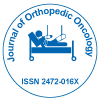Research Article
Uncemented Arthroplasty for Hip Pain and Fracture after Metastatic Disease and Multiple Myeloma: Case Series, Exploratory Graphical Analysis and Bayesian Network Modeling
Sergio PS Meirelles*, Daniel CS Rebolledo, Luiz FM Correia, Andre M Baptista and Olavo P CamargoUniversity of Sao Paulo, School of Medicine, University of Sao Paulo, Department of Orthopedics and Traumatology, Sao Paulo, SP – Brazil.
- *Corresponding Author:
- Dr. Sergio PS Meirelles
University of Sao Paulo , School of Medicine, University of Sao Paulo
Department of Orthopedics and Traumatology, Rua Alves Guimaraes434
Sao Paulo, SP – Brazil, CEP 05410-000
Tel: 9561765303
E-mail: sergiopsmeirelles@gmail.com
Received Date: November 18, 2015; Accepted Date: December 10, 2015; Published Date: December 17, 2015
Citation: Meirelles SPS, Rebolledo DCS, Correia LFM, Baptista AM, Camargo OP (2015) Uncemented Arthroplasty for Hip Pain and Fracture after Metastatic Disease and Multiple Myeloma: Case Series, Exploratory Graphical Analysis and Bayesian Network Modeling. J Orthop Oncol 1:103. doi:10.4172/2472-016X.1000103
Copyright: © 2015 Meirelles SPS, et al. This is an open-access article distributed under the terms of the Creative Commons Attribution License, which permits unrestricted use, distribution, and reproduction in any medium, provided the original author and source are credited.
Abstract
We are not aware of previous cases series of uncemented arthroplasty for hip pain or fracture secondary to metastatic disease or multiple myeloma. Objective: To describe a case series using a combination of narrative, graphical exploratory analysis and Bayesian Network modeling. Methods: Case series of 34 patients undergoing uncemented and hybrid arthroplasty procedures secondary to hip pain or fracture secondary to metastatic disease or multiple myeloma. Case series is presented using a narrative following Kempen’s reporting guidelines, exploratory graphical analysis and Bayesian Network modeling with a structure based on expert opinion and parameters inferred from the data. Most common tumors included gastrointestinal, multiple myeloma and breast. A total of 26.3% (n = 5) of all of our procedures were performed secondary to fractures. Most devices were total (n = 16, 84.2%) rather than partial, uncemented (n = 12, 63.2%) rather than hybrid. Average time between surgery and first walk was 20 days, average length of stay of 13 days, with average patient survival of 589 days. Only one infection was reported. Uncemented and hybrid arthroplasty devices did not differ in relation to time to walk as well as length of stay in this sample. Conclusion: Our model should be used as the prior for the addition of subsequent patient samples, thus personalizing its recommendations to other patient populations.

 Spanish
Spanish  Chinese
Chinese  Russian
Russian  German
German  French
French  Japanese
Japanese  Portuguese
Portuguese  Hindi
Hindi 